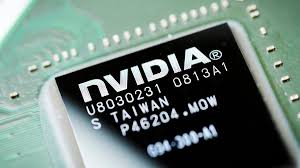Chinese regulators have voiced fresh national security concerns surrounding Nvidia’s H20 artificial intelligence chips a development that could threaten the chipmaker’s access to the world’s second largest economy. This move comes amid ongoing tensions between the United States and China over technological supremacy and control of advanced semiconductor capabilities.
Multiple sources familiar with the matter said that Chinese cybersecurity and technology officials have launched a detailed review of the H20 chips assessing whether they pose threats to national security critical infrastructure and data privacy. While the H20 was specifically designed to comply with US export restrictions the Chinese government appears unconvinced that the chip is devoid of potential security risks.
The H20 chip is a scaled-back version of Nvidia’s cutting-edge AI processors developed as a workaround to the export controls imposed by the United States Department of Commerce. These restrictions prohibit the sale of high-performance semiconductors that could be used to develop advanced artificial intelligence applications with military or surveillance potential. Nvidia introduced the H20 as part of a strategy to maintain business ties with Chinese clients without violating Washington’s regulatory framework.
Despite its compliance with export rules the H20 still retains significant processing power capable of supporting a range of enterprise and government AI workloads. This capability has alarmed some officials in Beijing who worry that the chips may allow backdoor access to sensitive systems or that their use could increase Chinese dependency on foreign technologies in strategic sectors such as telecommunications defense and finance.
Chinese authorities are said to be examining the chips’ architecture software stack and potential vulnerabilities as part of a broader assessment. The results of this review could determine whether the H20 chips will be permitted for widespread commercial or government use within China. If the chips are deemed to pose a security risk the government may restrict or ban their deployment altogether.
This regulatory push aligns with China’s broader strategy to foster domestic chip innovation and reduce reliance on American suppliers. Over the past several years Beijing has directed massive public and private investments into homegrown semiconductor firms including Huawei HiSilicon and Biren Technology. These companies are increasingly seen as strategic alternatives to foreign providers particularly in light of the growing risk of export bans or geopolitical disruption.
Analysts believe China’s review of the H20 chips is not purely technical but also deeply political. The semiconductor industry has become a central front in the broader US-China rivalry with both nations seeking to secure supply chains control standards and ensure dominance in emerging technologies such as artificial intelligence quantum computing and 5G. From Washington’s side restricting chip exports is viewed as a way to slow China’s AI development while from Beijing’s perspective fostering self-reliance is now a matter of national resilience.
For Nvidia the stakes are high. China accounted for roughly 20 to 25 percent of the company’s data center revenue in previous years making it one of its most important international markets. A ban or limitation on the H20 chips could significantly dent Nvidia’s regional growth and accelerate the shift of Chinese clients toward domestic alternatives. Furthermore it could signal a broader tightening of Chinese scrutiny on all foreign AI hardware operating within its borders.
Nvidia has not made a formal statement regarding the reported review. However the company has consistently stated its intent to comply with US export laws while also supporting international customers within the bounds of local regulations. The current scrutiny of the H20 comes just months after Nvidia began shipping the chips to Chinese partners highlighting how rapidly the regulatory landscape can shift in response to geopolitical developments.
It remains unclear when Chinese authorities will conclude their review or what restrictions may be imposed as a result. But for now the situation underscores the precarious balance global technology firms must strike between navigating regulatory requirements and maintaining access to key international markets amid growing global tech fragmentation.
source: reuters.com
